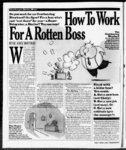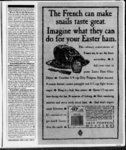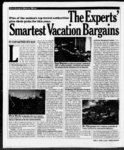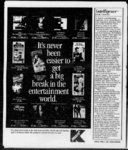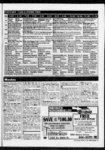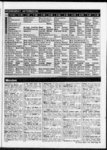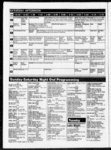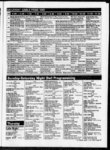| Show ) d IMMErillP110151PIN BMW About Your Money Is aretodown: Interest rates not seen are 6 back down today Mortgages The Prime rate915 since 1973 levels in 19801 on debt: Debt service We're getting a handle income n 1939 to 12 14 of lir 46' has dropped bun disposable personal today cording to Economic Analysis Associates And banks themselves are stronger than they've been in years—they may even start Owners!) tending again ac- r) Wm The University of The Kitimat Association of Realtors measure of housing affordabiTtty has risen 20 since 1990 and nearly Homes are more doubted since 19811banks to teday's km Interest rates and a coder housing market '- '- - I : - i - 110 ' 10 ' - - ' e j7 ' - r - ' I I I g Quality is up: us "first We're productive: Lottec services Wash Seen-u!2-- enti less than you earn (and people do live stkidable 4 every major sector" asserts The Kolb:Igor you name L agicribre constrection high-tec-h etanufachning Ira Environmental spending has paid off: ir it has cost us but our lakes and rivers are cleaner than they've been in a long thee and the EPA says smog levels have dropped 8 dining the last decade Lead levels are down 89 and bon monoxide levels are down 30 P car-Ca- rs are safer and better WM- - comprise more than 5 of the We're more diverse: 12 in 1966 Trade barriers continue to fall: we are the world's 1 exporter that's likely to benefit us more than anew that trees Defense spending is headed down: talent arid resoerces for more productive 'Mtgs Investment in new technology is booming: Technology is our futon and Simpsons TV: And our and our We've got our boom Not every American has these things almost and a and our taxes and our African-America- nation's professionals—up from i No As C ' The Rai phew in beled (so you know what you're eating) and for them as want it can be healthier with little sacrifice in taste (My latest obbutter almond crunch) session: fat-frWe drive The quality of American-mad- e cars is dramatically better And whatever kind of car you buy—foreign or domestic—you're getting more for your money adjusted for inflation than ever Driving is safer (For every billion miles driven 22 people die today vs 45 people 20 years ago) It's more reliable (New American cars average 14 defects vs eight defects per car 10 years ago) And it takes a lot less gas (The average car on the road today gets 21 miles to the gallon vs 135 in 1973) What's more GM already has a prototype of a car that can carry four adults coast to coast on 29 gallons of gas Within 10 years energy guru Amory Lovins foresees a safe comfortable station wagon ee PARADE MAGAZINE APRIL 4 1993 PAGE Compare that with Somalia or Russia or China te I 411 e 'A evegy but even among our poor 60 own automobiles or India or Africa or Mexico Or even Japan Ii re Long-ten- n CNN z - 4 'I t es::t -- - Computers open new worlds that gets better than 100 miles to the gallon So energy taxes may be going up but the overall cost of driving will trend down (especially if we get a sensible auto insurance system) We watch TV It's bigger and brighter than ever—with far more choices if you get cable—than 20 years ago And not all those extra choices are junk: CNN for example What's more and the next generation of television sets— HDTV or TV"—may We have a be largely American-mad- e our at shot friendly good competitors abroad ("US Chip Makers Stem the Tide in Trade Battles With New York Japanese" read a front-pag- e Tunes headline last year "Predictions of a Trouncing Have Not Panned Out:" We work Hard! But with at least somewhat more safety and somewhat less drudgery than 20 years ago We are even "high-defmiti- on leap-froggi- ng nt If you can somehow budget to live on - cars are now rated higher for safety than Japanese rivals Defects are down from 800 per 100 cars in 1981 to nearly the Japanese level of 136 today Ion For all that the best money news of all may be that you don't have to earn more each year to be happy It certainly helps and a but careful conscious personal strategy help too money-manageme- Energy use per Unit of gross national product has dropped 28 since 1985 and continues to faL That saves us moo-ey and puts continued downward pressure on energy prices 4 - ' r - - We're becoming more efficient: - - ' itt I r1:"' '-' 4 1L:'L- l' 7 i Homes are more affordable: e - - NI SW I - 'ir- e't Senihnsid is upl Commixes are optimistic Confidence of Consumer national Michigan's : ) 41--- - - - i It's almost magic—everything from microwave ovens to laser surgery to answering machines voice mail remote control car phones and cash machines Not everyone can afford all the magic We have a major challenge trying to keep people from slipping through the cracks But there's a lot to be excited about call-waiti- - : 44-1?- home (albeit not dancing) the same day on the brink—for real this time—of computers that can take dictation! It will be a while before "typists" can sit on their hands and just chatter away into the computer but IBM and others have begun marketing machines that understand tens of thousands of English words We putter around the house Twenty years ago the median size of a newly built house was just over 1400 square feet Today it's more than a third larger We plug things in NBC News reports that steady technological refinement has cut the cost of wind power from 50 cents per kilowatt hour to a nickel in some areas—and that this clean renewable resource could account for 10 of our electricity by the end of the decade We ache But less Many operations that once entailed months of painful recuperation now can be done using arthroscopic surgery with the patient back on less than you earn) then you can build savings and buy things that make life a little more enjoyable each year—particularly durable things that don't require a lot of upkeep Pace yourself rather than trying to have it all from Day One and life gets a little better each year And note that a lot of the best things in life are free or at least cheap You can read the same entertaining enriching books as the richest people in the world —for free Just visit the library You can watch the same $50 million movies as the richest people in the world—for free if you wait for them to come to Tv or for $2 on video or (if you're a really big spender) for $7 on the big screen You can have the same awesome baked potato as the Sultan of Brunei for nickels God put a lot of effort into that potato and adding $5 for cream sauce and a tuxedoed waiter really doesn't make it a whole lot better It's the people who constantly stretch their financial limits who set themsblves up to be disappointed Apart from all the inworries about debt and the credit-car- d terest that adds an 18 surcharge to everything they buy there's the constant feeling of "If only I had a bigger car I'd be happyIf only! could buy all the porcelain figurines on the shopping channel I'd be happy" But guess what? When you get them (I realize I'm not telling you anything you don't know) you want more More is good I'm all for more But a lot of the good news about your money is that compared to almost everybody else in the world—many of whom I'm reliably informed are reasonably hap- py too—you already have more The trick may be in learning to savor it "No amount of money ensures hap- piness" concludes David G Myers au- thor of The Pursuit of Happiness "Happiness is satisfaction with whatever you've got" Financial writer Andrew Tobias' most recent book "Auto Insurance Alert! (Why the System Stinks How To Fix It and What To Do in the Meantime)" is a $475 paperback call to action |






































































































































